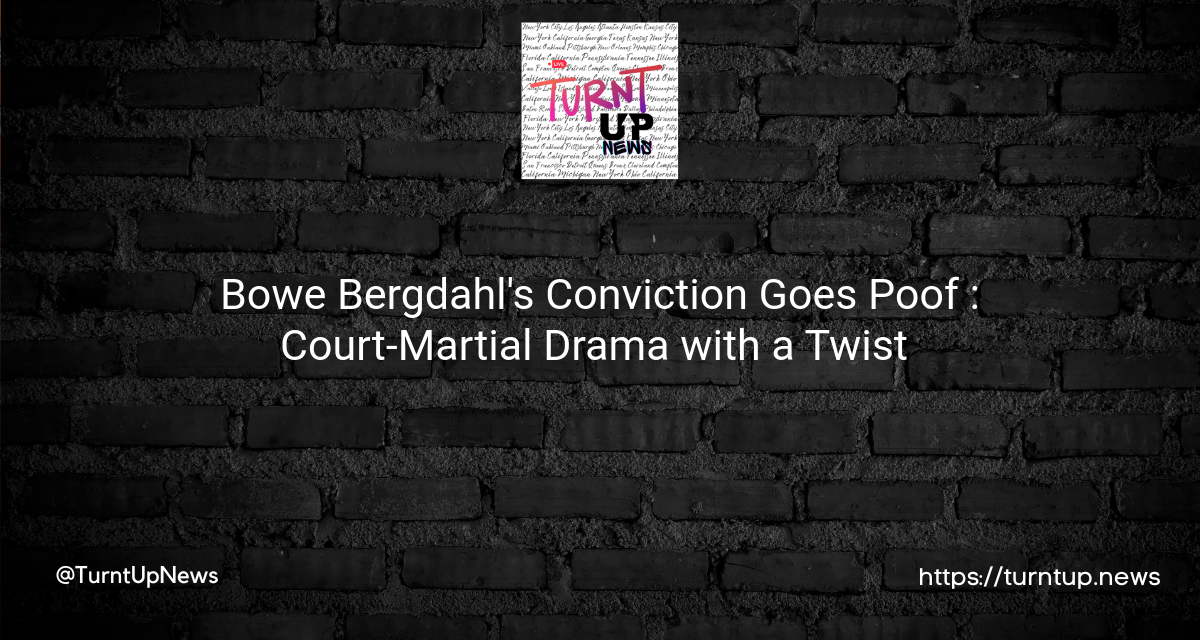Bowe Bergdahl’s Conviction Goes Poof 🌬️: Court-Martial Drama with a Twist 🌀
TL;DR: U.S. Army Sergeant Bowe Bergdahl had a wild turn in fortune 🍀 when a U.S. judge gave the ol’ razzle-dazzle to his 2017 court-martial conviction. Why? A military judge was apparently sending out job applications on the DL. 👀
While some of us have a hard time recalling what we ate for breakfast 🥐, U.S. Army Sergeant Bowe Bergdahl’s been living with a conviction that’s been quite the breakfast burrito of emotions. But life just threw in a spicy twist 🌶️!
Back in 2009, Bergdahl decided to take a “walkabout” from his post, and, well, he got nabbed by the Taliban. Bummer, right? 😓 Fast forward, he spent a solid five years with them before making it back stateside. And then, 2017 rolled around and BOOM 💥 – court-martial conviction. Dishonorable discharge, rank drop, and an “Ouch, that hurts!” fine of $10,000.
But wait… what’s this? A U.S. district judge named Reggie Walton gave the conviction the ol’ eraser treatment 🧽. Turns out, the military judge at Bergdahl’s court martial might’ve been a bit…distracted? This dude was sending out feelers for a gig as a federal immigration judge. I mean, who doesn’t want a side hustle, right? 🤷♂️ But here’s the catch: then-President Donald Trump wasn’t exactly singing Bergdahl’s praises. So, you toss in a judge looking for a job upgrade during a pretty high-profile case and sprinkle in some presidential shade, and you got yourself a potential bias stew 🍲.
Walton tapped on the brakes 🚫 saying, “Wait a minute! There’s no proof of actual bias.” But still, the optics weren’t great. So, voila! Conviction: gone. Now, this ruling isn’t the final say. It could be appealed, so Bergdahl might still have a few roller coaster loops to go 🎢.
Taking a step back, it makes you wonder. If there’s even a hint of potential bias, should a judge bow out of a case? Especially when it involves someone’s life and reputation? 🤔
And, in the age where everyone’s got an opinion (and a social media platform to voice it) 📢, how do we ensure that justice remains blind, impartial, and fair?
So here’s the question we’re leaving you with: When personal ambitions 🚀 and high-profile cases clash, can justice truly be served? 🤷♀️





